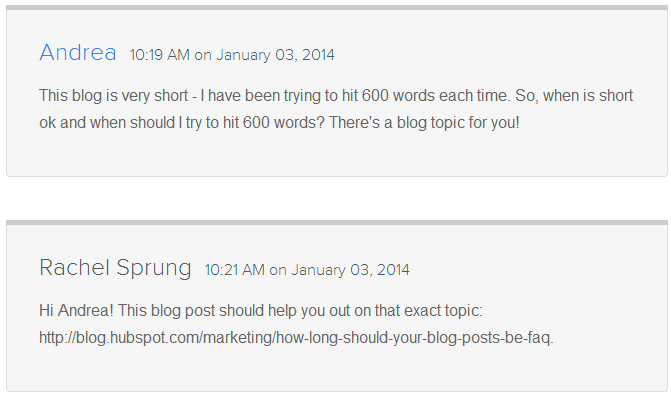This section will tell you how to handle any comments that are posted to your blog post, awaiting approval. Remember, if you are ever unsure about a comment, contact blogging@biomedcentral.com.
To delete or not delete? A guide to moderating comments
If a comment breaks the community guidelines you are within your rights to delete a comment, or request that the commenter makes edits to it. Any person who leaves a comment is agreeing to our community guidelines, so you will be within your rights to request changes to, or delete, any comment that breaks them.
This guide gives you some rules of thumb around what types of comments are and aren’t acceptable, but if you are ever unsure, please contact blogging@biomedcentral.com.
Definitely delete
1) Rude, crude, and offensive content
Even if we didn’t write the rude, crude, or offensive content, we’re still responsible for ensuring it doesn’t live on our site.
Our community guidelines clearly state that people shouldn’t post anything that contains any material that is abusive, vulgar, obscene, hateful, fraudulent, unlawful, threatening, or harassing towards any person whether a user on the blogs or not.
If someone has posted something that breaks this rule then that comment should be deleted immediately.
2) Blatant spam
You should also get rid of obvious spam comments. We use a spam filter called Akismet to block a lot of the spam comments posted, but some will still get through. If you’re not sure what blatant spam looks like, here’s a couple of examples:


Again, posting spam is against our community guidelines, and all spam posts should be deleted.
3) Secret spam
Some spam comments can look, to the untrained eye, like they might be legitimate. But they’re not. Here’s an example:

Because the post on which the comment appeared was about brides, the comment kind of makes contextual sense. Except that it’s devoid of any actual content, and there’s a text link pointing to another website, which is a ploy to get inbound links for that site. Other ways to identify secret spam include:
- Poor grammar (though this isn’t always an identifier … which you’ll know if you’ve read any comments section)
- Off-topic comments
- Off-topic comments that find ways to weave in mentions of keywords that are only marginally related to the article
Sometimes, it’s hard to tell the difference between secret spam and someone who just doesn’t know how to leave coherent comments, though, so you’ll have to use good judgement here.
If you’re unsure, contact blogging@biomedcentral.com.
Maybe delete
4) Trollers
Trollers are people who leave comments on posts to try to get a rise out of either the author, or other commenters. The best practice for dealing with trolls comes down to one easy-to-remember phrase: Don’t feed the trolls. This means the more you engage with trolls, the bigger and stronger they become.
So while some people would say you should definitely delete troll comments, sometimes this can incite trolls to get more aggressive with their commenting. As such, the best thing you can do with trolls is to just ignore their comments, unless they break our community guidelines.
5) Another language
If you’re getting comments in other languages, it’s hard to tell whether you should keep or delete the comment, because you can’t read it. If the comment looks like spam (the biggest hallmark would be links) go ahead and delete it. But it’s a good idea to put the text into Google Translate to see whether the comment does contribute to the conversation. Who knows, you may have more international readers than you suspected.
6) The sales pitch
Some comments are clearly someone in marketing or sales trying to get either leads, or an inbound link. If they seem completely self-serving, and not helpful or relevant to either the post or previous comments, then the comment can be deleted.
However, the below example highlights an exception to this:

The second comment is actually helping the previous commenter.
If you’re about to delete a comment because it seems like someone’s simply trying to sell their own products or content, take a second to assess whether they’re just out of tune with commenting etiquette. They might actually have something helpful to contribute that simply isn’t presented properly.
Don’t delete even though you want to
When a commenter is argumentative, either with you or another commenter, it can make you feel a little tense or even infuriated. But healthy discussion can make our blogs even more interesting for readers.
Don’t delete the dissenters, even if you think they’re wrong. Best-case scenario: they are wrong, and other commenters chime in to make it clear, or you can reply to explain what they’ve misunderstood. Worst-case scenario: They’re right, and you now have a comments section where people are having a genuine discussion and teaching each other things.
The bottom line
If it breaks the community guidelines you are within your rights to delete a comment, or request that the commenter makes edits to it.
If you’re ever unsure about what to do with a comment, contact blogging@biomedcentral.com.